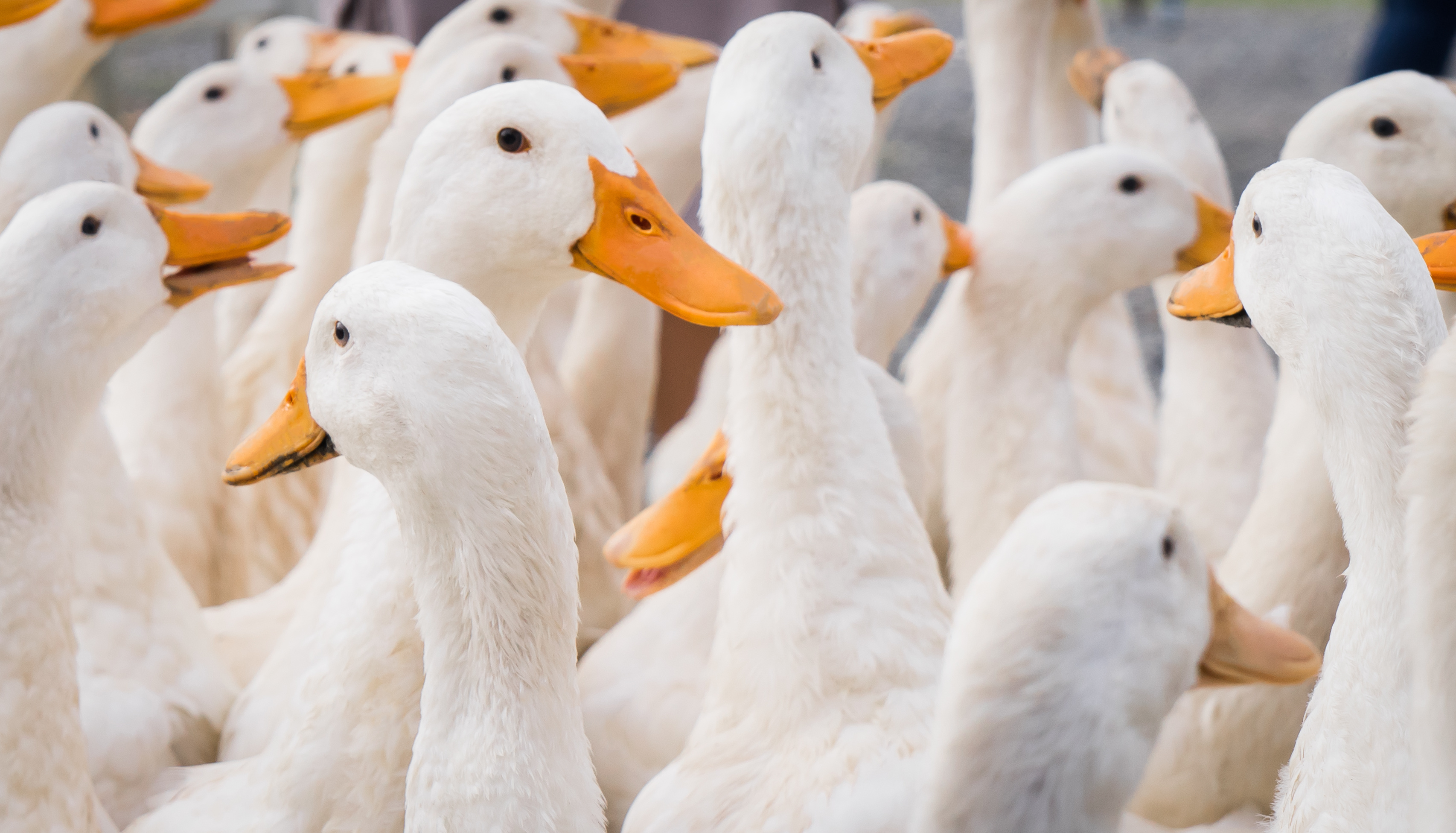



Duck farmers in China thrive amid pork shortages
In light of African swine fever, demand for duck meat as an alternative to pork has increased substantially.On a 30-hectare (74-acre) plot of land in China's Shandong province poultry hub, more than half a million white-feathered ducks are busy eating, chattering and laying eggs to produce cheap meat for thousands of factory canteens.
Reuters reported that with birds already packed into around 60 open-sided buildings, farm owner Shenghe Group is expanding further, aiming to raise output by 30 percent this year to capture record profits as a plunge in pig numbers shrinks production of pork, China's favourite meat.
"The market prospects are very good now because of African swine fever," said Shenghe Chairman Wang Shuhong, whose firm sells about 300,000 ducklings a day for fattening and slaughter.
The deadly pig disease has already reduced China's hog herd by more than a quarter, according to official data. As many as half of the country's breeding sows are thought to have died or been slaughtered to cope with disease outbreaks.
Pork production will fall by 30 percent or about 16 million tonnes, say analysts at Dutch lender Rabobank, pushing prices to new records and leaving a gaping hole in the country's protein supply.

Cheap protein
Higher pork prices - up about 35 percent in a year - have already fuelled a surge inpoultry meat demand. Chicken breast is about 20 percent more expensive than a year ago, while duck breast has nearly trebled in price to 14,600 yuan ($2,125) a tonne, according to Shenghe.
This is still only about half the cost of pork, but such prices are unheard of in China, where breast is typically the cheapest part of the bird.
About 80 percent of the world's ducks are raised in China, but are traditionally eaten in the south, where fried duck tongues, braised feet and spicy duck neck are popular snacks, and duck intestines make up a hotpot.
In recent years, however, more ducks have been processed for use by cost-conscious catering firms, supplying large canteens feeding schools, factories, businesses and the military.
These buyers are now switching as much pricey pork as they can to duck.
A procurement manager with a catering firm that supplies about 100 large clients around China said he has replaced about 20-30 percent of the pork on menus with either chicken or duck meat. He declined to be identified because of the sensitivity of the issue.
"We may switch even more. But our concern is that the poultry price is now going up as well," he said.
The price of day-old ducklings, sold by farms like Shenghe, has hovered around 6 yuan, three times the usual level, since July last year.
Prices eased last month as farmers held off restocking during hot summer weather, but are rising again and set to go higher, said Dong Xiaobo, China general manager for French genetics company Orvia, the No.2 supplier of breeding ducks.
Orvia is sold out six months ahead and has even had calls from pig farmers considering raising ducks after losing their hogs to African swine fever.
"I've never seen this in our 10 years in this market," said Dong.
Pig crisis, duck opportunity
As swine fever continues to spread, China's vice-premier Hu Chunhua has urgedpoultry farmers to help fill the protein gap to maintain social and economic stability.
Analysts warn the disease could hit some farms more than once, and ratings agency Fitch forecasts pork output will stay below 2018 levels through 2021.
With output of about 5 million tonnes last year, less than half China's chicken production, duck meat has plenty of room for growth.
The barrier to entry is lower for ducks than broiler chickens and breeding stock is more available, said Pan Chenjun, senior analyst at Rabobank.
Broiler chicken farmers rely almost entirely on imported breeding stock, which has been restricted by China's bans on imports from key markets because of bird flu outbreaks. Output may expand less than 5 percent this year, said Pan.
Any rapid expansion carries risks however. In densely stocked farms, diseases like bird flu, several strains of which are circulating in China, spread easily.
And it remains to be seen whether duck farmers can hold on to a bigger share of the meat market when pork output recovers.
Duck farmers were forced out of the industry in droves between 2012 and 2016 when overproduction killed profits, and most people still want more pork dishes than any other meat, said the catering company manager.
But Shenghe's Wang, who is planning to expand downstream with a slaughterhouse later this year, is not worried.
"Pork output won't go up in the next three years and will take at least five years to recover," he said.
($1 = 6.8756 Chinese yuan renminbi)









